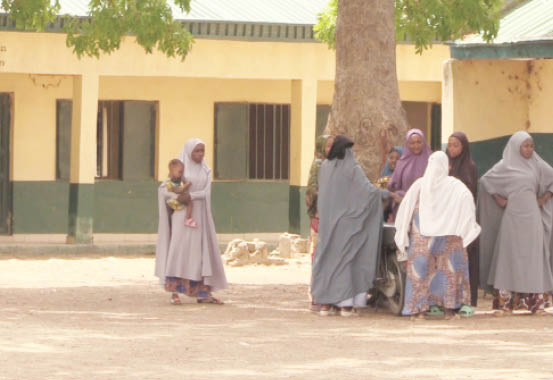Attacks on schools: Forum wants 10-year jail term for perpetrators
Civil society and education experts have urged the federal government to work with the National Assembly to institutionalised punishment for perpetrators of attacks on schools and other educational institutions in the country. They gave the advice on Wednesday in Abuja at the expert meeting on the validation of the draft legislation on Safe School Declaration […]

Civil society and education experts have urged the federal government to work with the National Assembly to institutionalised punishment for perpetrators of attacks on schools and other educational institutions in the country.
They gave the advice on Wednesday in Abuja at the expert meeting on the validation of the draft legislation on Safe School Declaration (SSD) bill for the domesticated of the National Policy on Safety Security and Violence-Free Schools (NPSSV-FS).
It was organised by Women Advocate Research and Documentation Centre (WARDC) in collaboration with National Human Rights Commission (NHRC), Syndicate in Supporting Women and Children Initiative (SISWACHI), West Africa Network for Peacebuilding Nigeria Chapter (WANEP), and Riplington Education Initiative (REI).
- Nigeria doesn’t need Obi, Atiku, Tinubu in 2027 – Kenneth okonkwo
- China agrees to help Nigeria fight money laundering
The founding Executive Director of WARDC, Dr. Abiola Akiyode-Afolabi, said it is important to use the conversation that Safe Schools declaration has moved from ordinary dialogue between Federal Ministry of Education, Federal Ministry of Finance, some CSOs, those working on education and the emergency context, to an issue of public concern and participation.
“However, the SSD is yet to be fully implemented, and schools across the country still do not comply with the standard protocols in line with the SSD. Much cannot be achieved without government leadership at both national level and state levels, strong community voice, stakeholder in education, including community members, school administrators, community groups, women’s groups, media, and the public sector.
“The Federal Government in the closing days of 2022 signed and launched a N144.8 billion Safe Schools Financing Plan, which it says will be implemented between 2023 and 2026. This plan will complement the NPSSVFS with its implementing guidelines, adopted in 2021. Thus, there is an opportunity,” Akiyode-Afolabi said.
She noted that part of the provisions in the bill include that attack or destruction of any school or institution of learning during armed conflict is prohibited; while government shall investigate and prosecute offenders.
She also noted that one of the provisions was that “Any person or group who attacks or destroys a school or the facility commits an offence and is liable on conviction to imprisonment for 10 years and fine equal to the cost of the restoration, rehabilitation or rebuilding of the school.”
Executive Secretary of NHRC, Dr. Anthony Ojukwu, said that Nigeria witnessed attacks on schools, including Chibok, Dapchi, Kaduna, Lagos and some other parts of the country.
He said that in response to the alarming trends, Nigeria made a historic commitment by signing the SSD in 2019, affirming Nigeria’s dedication to protecting education from attack even in times of conflicts.
He urged all Nigerians to the the protection of schools as not a government or stakeholders responsibility, but a collective responsibility of all.
The Minister of Education, Prof. Amman Tahir, represented by Dr. Uche Onwuama, a Director in the Federal Ministry of Education, said that the government is committed to ensuring the safety of all schools in the country, including using legislative and judicial instrumentality.
